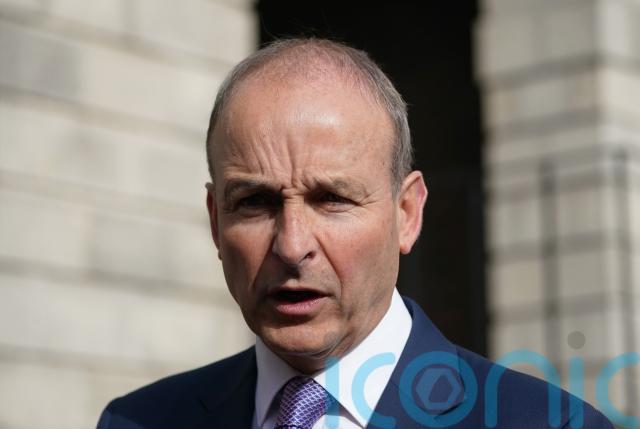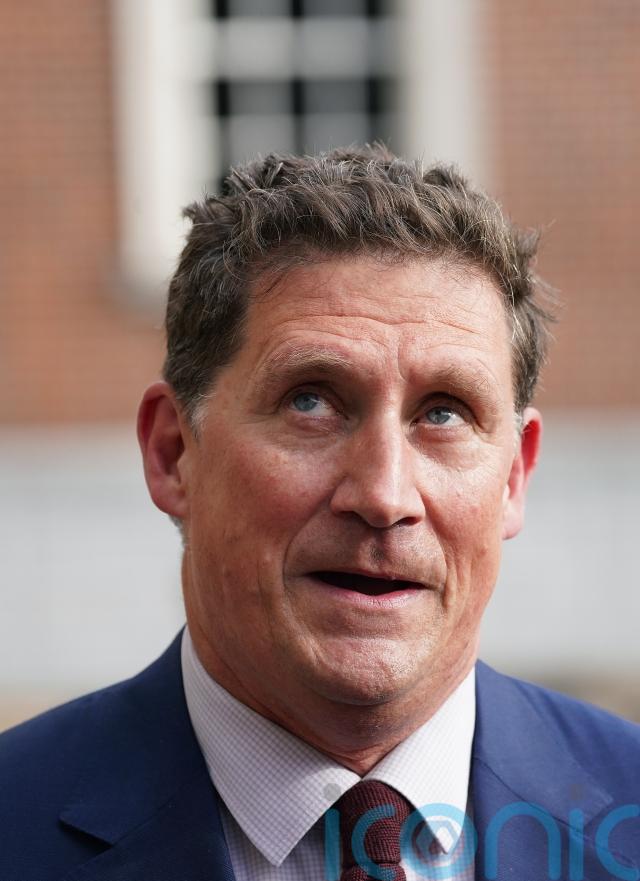
Emissions ceilings will present “challenges” to transport, energy and agriculture and “all sectors will have to stretch themselves” to tackle climate change, Irish premier Micheal Martin has said.
The Taoiseach made the comments as the three coalition leaders – Mr Martin, Tanaiste Leo Varadkar, and Green Party leader Eamon Ryan – failed to reach an agreement on Tuesday night on what level of greenhouse gas emission reductions should be imposed on key sectors of the economy.
The Climate Change Advisory Council has recommended that the agriculture sector cuts its greenhouse gas emission by 22-30%, as part of Ireland’s aim to reduce its total emissions by 51% by 2030.
Some backbench TDs have said the emissions ceiling should be set on the lower end of that range, with climate scientists and some opposition parties calling for a reduction on the higher end.
Speaking on Wednesday morning on his way to the last Cabinet meeting before the summer break, Mr Martin said it is not easy to reach an agreement, but the Government is “determined to get this resolved”.

He added: “What the difficulties reflect in reaching an agreement, they reflect the significance of the challenges. I think it’s important that we get a resolution, but that we do it in a way that facilitates delivery down the road and real momentum in relation to climate change.”
Mr Martin added that part of the challenge with agriculture is in acknowledging the greater part it will play in the energy sector in the future, and to recognise the importance of food production system supply.
Mr Ryan, the Minister for Transport and the Environment, acknowledged that working out the mechanics of the agreement has been “tricky”.
He added: “I hope we can close the difference and agree the approach today.
“It’s very significant for every section in Irish society. We’ve got to make sure the changes we make are for the better – good for farmers, good for transport, good for energy, good for employment, good for protecting us against the cost of living.
“It’s taken a bit of time, but I am hopeful we can get agreement today.”

Ireland has legally committed to halving its carbon emissions by 2030 and to achieving net-zero by 2050.
An Environmental Protection Agency report released last week found Ireland’s greenhouse gas emissions increased by 4.7% in 2021 compared to 2020, and are now 1.1% above 2019 pre-Covid restriction levels.
There was a 17.6% increase in emissions from the energy industry in 2021, which it said was due to a tripling of coal and oil use in electricity generation, and emissions from the agriculture sector increased by 3% last year, driven by a 5.2% increase in fertiliser use and a 2.8% increase in the number of dairy cows.
Mr Martin said achieving the emissions ceilings will be “very, very significant indeed”.
He added: “From transport, to energy, to agriculture. I would have to say in fairness to agriculture, already the targets that have been set are very, very challenging, and will be challenging.
“We’re looking at ways as to how in all sectors, including agriculture, we can stretch those targets and ensure a meaningful contribution all round.
“What we’re trying to do here is avoid the worst consequences of climate change. We’re not going to avoid climate change now, we can see that with the heatwaves during the summer, but what we can do for future generations and for our children’s children, we can limit those consequences.”
Subscribe or register today to discover more from DonegalLive.ie
Buy the e-paper of the Donegal Democrat, Donegal People's Press, Donegal Post and Inish Times here for instant access to Donegal's premier news titles.
Keep up with the latest news from Donegal with our daily newsletter featuring the most important stories of the day delivered to your inbox every evening at 5pm.